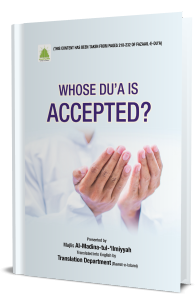
Remembering Our Pious Elders
Mawlana Haji Abu Majid Muhammad Shahid Attari Madani
Jumāda al- Ākhir is the sixth month of the Islamic year. Regarding the Companions, saints, and scholars who passed away or are commemorated in this month, 111 have been previously mentioned in Faizan-e-Madinah Monthly Magazine (1438 AH- 1445 editions). A further 12 are mentioned herein.
The Companions رَضِیَ الـلّٰـهُ عَنْهُم
1. Abū ʿAbdullāh Aswad b. Sarīʿ Sʿadī Tamīmī رَضِىَ اللّٰهُ عَـنْهُ was a poet during the Age of Ignorance and fought in four ghazwas after accepting Islam. He lived in Basra, and in the city’s central masjid, was the first person to begin narrating incidents in his sermons. Famous Tābiʿīn, such as Ḥasan Baṣrī, Aḥnaf b. Qays, and ʿAbd al-Raḥmān b. Abū Bakr reported hadith from him. He was martyred during the Battle of Jamal (Jumāda al-Ākhir 36 AH).[1]
2. Ḥanẓal b. Ḍirar Ḥuṣayn رَضِىَ اللّٰهُ عَـنْهُ lived through the Age of Ignorance and later accepted Islam. He had a long life, as reports say he was 100 years old when martyred in the Battle of Jamal. The Tābiʿī jurist, Ḥamīd b. ʿAbd al-Raḥmān Baṣrī reported hadith from him.[2]
Saints رَحِمَهُمُ الـلّٰـهُ
3. Abū al-Ḥasan ʿAlī Naqī Hādī ʿAskarī رَحْمَةُ الـلّٰـهِ عَـلَيْه was born in Medina, in Rajab 214 AH. He was a righteous mufti from whom many scholars acquired knowledge. He lived in Samara for 20 years and 9 months. He was a man of great strength, courage, eloquence, knowledge, spirituality, intellect, and wisdom. He passed away on the 25th or 26th of Jumāda al-Ākhir 254 AH, in Samara. His sons include sayyids Ḥasan al-ʿAskarī, Jaʿfar Tawwāb, Jaʿfar Mubarqʿa, Abū Sharaf Ḥasan, Ḥusayn, Ziyāda, ʿAlī Imām, Muhammad, and Yaḥyā.[3]
4. Abū al-Ghawth Garam Dīwān Fārūqī رَحْمَةُ الـلّٰـهِ عَـلَيْه was born in Bhera (UP; India) in Rabīʿ al-Ākhir 1100 AH. He passed away on the 25th of Jumāda al-Ākhir 1178 AH and was buried in Lehra. Born to an academic household, he was a scholar, shaykh, performer of miracles, and spiritual representative of Sayyid Fatḥ Muhammad Chishtī.[4]
5. The lineage of Sayyid Munawwar ʿAlī ʿUmardarāz links back to Junayd Baghdādī رَحْمَةُ الـلّٰـهِ عَـلَيْه via two generations, from Shaykh ʿAbdullāh and Shaykh ʿUthmān. Born on the 11th of Ramadan 491 AH, he was a murid and close affiliate of Shaykh ꜤAbd al-Qādir al-Jīlānī, and the son of a spiritual guide. He lived in Baghdad for 42 years alongside the shaykh. Upon the latter’s passing, he spent the next 16 years with Sayyid Kabīr al-Dīn Aḥmadābādī, before ultimately travelling to India with him.
Sayyid Kabīr al-Dīn made him his spiritual representative in 587 AH and commissioned for him to be stationed in Ilahabad. After a long life of 708 years, he passed away on the 4th of Jumāda al-Ākhir 1199 AH, and was interred in Ilahabad.[5]
6. Muẓaffar ʿAlī Aḥmad Khān Murādābādī رَحْمَةُ الـلّٰـهِ عَـلَيْه was born in India’s city of Muradabad, in 1247 AH. He spent much time with Shaykh Tawakkul, whose grandfather he later became a murid of in 1272 AH. He became a successor of both shaykhs and acquired ijāza from them. He was the first custodian of Tawakkul Shāh Ambālwī. He passed away at the age of 91 on the 24th of Jumāda al-Ākhir 1338 AH, and is buried in Hisar City, India.[6]
Scholars of Islam رَحِمَهُمُ الـلّٰـهُ
7. Abū Isˈḥāq Ibrāhīm Shīrāzī رَحْمَةُ الـلّٰـهِ عَـلَيْه was born in Firozabad (Iran) in 393 AH. He passed away on the 21st of Jumāda al-Ākhir 476 AH in Baghdad, and is buried in Baghdad’s Bab Abraz. He was a mujtahid of Shāfiʿī jurisprudence, an author of many books, a man of great character and eloquence, and a teacher at Baghdad’s Madrassa Niẓāmiyya. Al-Nukat fī al-Masāˈil al-Mukhtalif is one of his greatest works.[7]
8. Nawāb Khān al-Muhājir al-Makkī رَحْمَةُ الـلّٰـهِ عَـلَيْه was born in Lawni (Peshawar) around 1229 AH. He acquired proficiency in Arabic and Persian literature there before travelling to Lucknow and Rampur. Studying logic and philosophy from Faḍl al-Ḥaqq Khayrabādī, undertaking hadith studies in Delhi, and learning medicine from Imām al-Dīn Dihlawī, he then established an clinic in Lucknow upon graduation. This gained widespread acclaim, leading to his appointment as teacher of Nawāb Kalb-i-ʿAlī, the governor of Rampur.
After more clinic work in Bhopal, he relocated to Mecca, memorised the Quran, and set up another clinic. He did not return to India despite the insistence of its people. He gave bayʿa to Aḥmad Saʿīd Mujaddidī al-Muhājir al-Madanī, and was made successor of Ibrāhīm Rāshidī Khaḍrawī. He passed away in Mecca in 1309 AH and was buried therein.[8]
9. Ẓuhūr al-Ḥusayn Rāmpūrī رَحْمَةُ الـلّٰـهِ عَـلَيْه was born in 1274 AH and passed away on the 22nd of Jumāda al-Ākhir 1342 AH, in Rampur (India). An expert in ʿaqliyya and naqliyya sciences, he was headteacher at Bareilly’s Manzar-i-Islam madrassa and taught a host of scholars, including India’s grand mufti, Muṣṭafā Razā Khān. He annotated countless academic textbooks.[9]
10. Kāẓim ʿAlī ʿAzīzī Miṣbāḥī رَحْمَةُ الـلّٰـهِ عَـلَيْه was a graduate of Jāmiʿa Ashrafiyya, an insightful teacher, expert scholar, diligent researcher, loved by all, and a righteous figure. Born to a religious household in India’s Khalilabad in 1350 AH, he taught in various Islamic institutes for 37 years, before passing away on the 9th of Jumāda al-Ākhir 1412 AH. He was buried in the Narelwari cemetery of Bombay; India.[10]
11. Staunchly committed to Tehrik Aqida-i-Khatm-i-Nubuwwat and its mission, Sayyid Muhammad ʿAlī Razawī Ḥusn al-Warā رَحْمَةُ الـلّٰـهِ عَـلَيْه was born in Alwar (Rajasthan; India) in 1332 AH. He passed away on the 11th of Jumāda al-Ākhir 1429 AH in Hyderabad (Sindh) and was buried in the darga of ʿAbd al-Wahhāb Jilānī. He was an scholar, graduate of Ḥizb al-Aḥnāf Lahore, imam and orator of many masjids in Lahore, Delhi, and Hyderabad, founder of Jāmiʿa Masjid Noor in Hyderabad, a member of Pakistan’s National Assembly, and a shaykh of taṣawwuf at Daru-ul-Uloom Aḥsan al-Barakāt. Sayyids ʿAlī Ḥusayn Ashrafī and Ṭāhir ʿAlāˈ al-Dīn Gīlānī issued him khilafa.[11]
12. Mufti Muhammad ʿAlīm al-Dīn Naqshbandi رَحْمَةُ الـلّٰـهِ عَـلَيْه was born in 1361 AH and passed away on the 17th of Jumāda al-Ākhir 1440 AH. He was a leading scholar of the Ahl al-Sunnah and teacher at Jhelum City’s Sulṭāniyya madrassa. He was also heavily involved in literature during his teaching days, ten of which have been put to print until today. These include translations of Subul al-Hudā wa al-Rashād and Sirāt-i-Sayyid al-Anbiyāˈ. He was both student and younger brother of Mufti Jalāl al-Dīn Qādirī (founder of Jāmiʿa Islāmiyya, Gujarat, Punjab).[12]
[1] Maʿrifat al-Sahabah, vol. 1, p. 255
[2] Al-Iṣaba, vol. 2, p. 155
[3] Tarīkh Baghdad, vol. 12, p. 56; Ahl-i-Bayt kē Imām, pp. 372-416
[4] Tazkirat Ulema-i-Bhera Walidpur, pp. 63-68
[5] Sawāniḥ Ḥayāt-i-Munawwar ʿAlī Shāh, pp. 6-10-29-30
[6] Tadhkira Mashāˈikh Naqshbandiyya, p. 617
[7] Siyar Aʿlām al-Nubalāˈ, vol. 14, pp. 7-12
[8] Tadhkira Kamilān-i-Rāmpūr, pp. 422-424
[9] Mumtāz Ulema Farangī Mehal Lucknow, pp. 417-419
[10] Tadhkira ʿAllāma ʿAbd al-Raˈūf Balyāwī, pp. 113-120
[11] Ḥayat-i-Imām al-Muḥaddithīn, pp. 38-39
[12] Fatāwā Dīdāriyya, pp. 16-17

















Comments